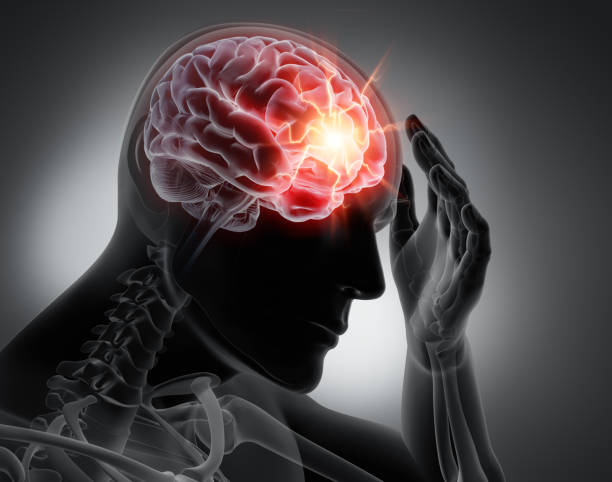Achieve Recovery with Craniotomy Surgery in Riyadh
- enfieldroyalsaudi1
- Oct 17, 2024
- 4 min read
Craniotomy surgery is a crucial procedure for treating various neurological conditions. It involves the surgical removal of a portion of the skull to access the brain. This procedure can be life-saving, offering hope and healing to individuals suffering from serious health issues. In this blog, we will explore the importance of craniotomy surgery in Riyadh, the conditions it addresses, the surgical process, and what patients can expect during recovery.

Understanding Craniotomy Surgery
Craniotomy is a significant surgical procedure that allows access to the brain for diagnosis or treatment.
What is Craniotomy Surgery?
A craniotomy involves the temporary removal of a portion of the skull.
It provides surgeons with direct access to the brain to treat conditions such as tumors, aneurysms, or traumatic injuries.
Why is it Necessary?
This surgery is essential for managing various brain conditions that cannot be treated with medication alone.
It can relieve pressure from swelling, remove tumors, and repair damaged areas of the brain.
Conditions Treated with Craniotomy Surgery
Several medical conditions necessitate craniotomy surgery in Riyadh. Understanding these conditions can help patients make informed decisions.
1. Brain Tumors
Craniotomy is commonly performed to remove benign or malignant tumors.
The procedure aims to alleviate symptoms caused by the tumor, such as headaches or neurological deficits.
2. Aneurysms
Aneurysms are bulges in blood vessels that can lead to life-threatening hemorrhages.
Craniotomy allows for clipping or repairing the aneurysm to prevent rupture.
3. Traumatic Brain Injuries (TBI)
Severe head injuries may require surgery to address bleeding, swelling, or fractures.
A craniotomy can help relieve pressure and repair damage.
4. Epilepsy
In some cases, craniotomy is used to remove the part of the brain responsible for seizures.
This surgical intervention can significantly improve quality of life for patients with epilepsy.
The Craniotomy Procedure
Understanding the craniotomy process can alleviate concerns and prepare patients for what to expect.
Pre-Operative Preparation
Before surgery, patients undergo a comprehensive evaluation, including imaging tests like MRI or CT scans.
Discussions about medical history and medication usage are crucial to ensure a safe surgical experience.
The Surgical Process
Anesthesia is administered to ensure the patient is comfortable and pain-free during the procedure.
The surgeon makes an incision in the scalp and removes a section of the skull.
The underlying brain tissue is then accessed to perform the necessary intervention, whether it be tumor removal, aneurysm repair, or another procedure.
Once completed, the skull section is repositioned and secured, and the incision is closed.
Duration of the Surgery
A craniotomy typically lasts several hours, depending on the complexity of the case.
The duration can vary based on the specific condition being treated and the patient's overall health.
Post-Operative Care and Recovery
Recovery after craniotomy surgery in Riyadh is critical to ensure successful healing and minimize complications.
Immediate Post-Operative Care
Patients are usually monitored in a recovery room for several hours after surgery.
Medical staff checks vital signs, neurological status, and manages pain effectively.
Hospital Stay
The length of hospital stay can range from a few days to a week, depending on the surgery's complexity and the patient’s condition.
During this time, medical professionals will monitor for any potential complications, such as infections or bleeding.
At-Home Recovery
After discharge, patients may need assistance at home, especially in the first few days.
Rest is essential, along with following all post-operative care instructions provided.
Managing Recovery and Rehabilitation
Successful recovery from craniotomy surgery in Riyadh often requires rehabilitation and lifestyle adjustments.
Physical Rehabilitation
Depending on the extent of the surgery and its impact on motor functions, physical therapy may be necessary.
Rehabilitation helps restore strength, mobility, and coordination.
Cognitive Rehabilitation
Some patients may experience cognitive challenges after surgery.
Cognitive therapy can aid in regaining memory and problem-solving skills.
Emotional Support
It is essential to provide emotional support for patients as they recover from surgery.
Counseling and support groups can be beneficial for emotional healing.
Potential Risks and Complications
Like any major surgery, craniotomy surgery in Riyadh carries certain risks that patients should be aware of.
Common Risks
Infections at the surgical site can occur, requiring prompt treatment.
Bleeding may also happen, necessitating further intervention.
Long-Term Complications
Some patients may experience neurological deficits, such as weakness or sensory changes.
Seizures can occur, especially if brain tissue is affected.
Preparing for Craniotomy Surgery
Preparation is crucial to ensure a smooth surgical experience and recovery.
Pre-Surgery Checklist
Follow all pre-operative instructions from healthcare professionals.
Discuss any medications or supplements with your medical team to avoid complications.
Mental Preparation
Understand the procedure and its implications for your health.
Address any fears or concerns with your healthcare team to feel more at ease.
The Importance of Choosing a Skilled Team
Selecting a qualified surgical team is essential for successful outcomes in craniotomy surgery in Riyadh.
Researching Credentials
Ensure that the surgical team has relevant experience and qualifications.
Look for board certification and specialization in neurosurgery.
Patient Reviews and Testimonials
Reading patient reviews can provide insight into the surgical team’s expertise and patient care.
Positive testimonials may indicate a higher likelihood of successful outcomes.
Conclusion
Craniotomy surgery is a vital procedure for treating various neurological conditions, and craniotomy surgery in Riyadh offers patients advanced care and expertise. By understanding the surgical process, potential risks, and the importance of post-operative care, patients can approach this life-changing surgery with confidence.




Comments